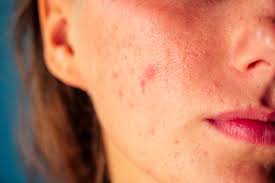
Persistent skin issues can significantly impact comfort, confidence, and overall well-being. A dermatologist specializes in diagnosing and treating chronic skin conditions that require expert care and long-term management. From eczema to psoriasis, these conditions benefit from personalized treatment plans that address symptoms and underlying causes. Here are some chronic skin conditions treated by dermatologists:
Managing Inflammatory Skin Disorders
Inflammatory skin disorders cause redness, swelling, and irritation that can be uncomfortable. Eczema, also known as atopic dermatitis, is a common condition that causes the skin to become dry, itchy, and inflamed. This condition often runs in families and affects people of all ages. A dermatologist prescribes special creams and medications to help control eczema symptoms.
Psoriasis is another inflammatory condition in which skin cells grow too quickly, resulting in thick, scaly patches. These patches appear anywhere on the body and may be itchy or painful. Dermatologists may include treatments such as special light therapy and prescription medications to slow down skin cell growth. Rosacea primarily affects the face, causing persistent redness and sometimes small bumps that resemble acne. A dermatologist helps identify triggers that make rosacea worse and prescribe treatments to reduce redness.
Addressing Chronic Acne and Scarring
Acne isn’t just a problem for teenagers. Many adults deal with ongoing acne that often leave scars. A dermatologist understands the various types of acne and can create personalized treatment plans based on the specific causes of your breakouts. Hormonal acne, cystic acne, and other severe forms often need prescription medications that only a dermatologist can provide. Acne scars can be treated with various methods once active acne is under control. Your dermatologist may recommend laser treatments, chemical peels, or other procedures to help smooth out scarred skin.
Treating Pigmentation and Autoimmune Conditions
Some chronic skin conditions affect skin color and pigmentation. Vitiligo is an autoimmune condition in which the body attacks cells that produce skin pigment, resulting in white patches on the skin. While there’s no cure for vitiligo, dermatologists can help slow its progression and sometimes restore some color to affected areas. Treatment options include special light therapy, topical medications, and other advanced treatments.
Alopecia areata is another autoimmune condition that causes hair loss in round patches. This condition often affects the scalp or other areas of the body where hair grows. A skin specialist can diagnose alopecia areata and recommend treatments to help hair regrow.
Supporting Long-Term Skin Health
Managing chronic skin conditions requires ongoing care and monitoring. Your dermatologist will work with you to create a treatment plan that fits your lifestyle and addresses your specific needs. Regular check-ups help track the effectiveness of treatments and allow for adjustments when necessary.
Skin cancer screening is a key component of dermatology services, particularly for individuals with chronic skin conditions. A dermatologist can teach you about proper skin care routines and help you identify factors that may trigger flare-ups. They also coordinate care with other healthcare providers if your skin condition is related to other health problems.
Book a Dermatologist Appointment Today
Chronic skin conditions can significantly impact your well-being, but you don’t have to manage them alone. A qualified dermatologist has the expertise and tools needed to help control symptoms and improve your skin health. Schedule an appointment with a dermatologist today for a professional evaluation and personalized treatment plan.




